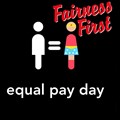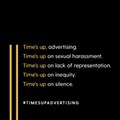#FairnessFirst: Time to stand for purpose-led marketing and social impact advertising

Face2Face Africa sets the context as follows:
Her life story was so fascinating that it got a mention in President Ronald Reagan’s 1984 State of the Union address, in which he described her as a “spirit of America” who “rose from a ghetto shack to build a multi-million-dollar advertising agency in Chicago.”They’re referring to Proctor and Gardner Advertising, which Proctor founded in 1970 – yes, just Proctor.
According to the Washington Post, “The company was called Proctor and Gardner Advertising. But there was only one founder behind it — Barbara Proctor, maiden name Gardner.”
What’s in a name?
That’s why AdAge explains she named her firm Proctor & Gardner Advertising, “to give the impression of a white male behind the curtains,” and says the resemblance to the already-famous-at-the-time ‘Procter & Gamble’ didn't hurt.
But it wasn’t all smoke and mirrors. In fact, Proctor’s insistence of ethical advertising would do well in today’s age of truth-telling and purpose-led marketing.
For example, Proctor was famously fired from a campaign, after refusing to work on a 1970 TV commercial that intended to sell hair products by mimicking a civil-rights demonstration, with women running down the streets waving hairspray cans, demanding to have their hair ‘foamed’. Typical advertising fodder, but not an idea Proctor wanted to be associated with.
This was during the days of the black revolution in the USA, and brought to the fore Proctor’s vow “never to participate in the negative portrayal of women or blacks,” says the Washington Post.
An inspirational woman https://t.co/3kR7g8iGc7
— Kimberley A. Pickett (@kim_pickett) January 14, 2019
Reel Chicago reports that their billings grew to $12m by 1992, but the economic recession hit hard and the agency went on to file for bankruptcy protection in 1995, following two decades of trailblazing success.
From double minority to ‘the only’
Adding to the agency’s successes, Face2Face Africa calls Proctor a true ad industry pioneer. In the Mad Men era she referred to herself as a ‘double minority’ – black and female, starting her agency by taking out a loan “at a time when chances like these were unavailable.”
Luckily, inequalities are finally being acknowledged, but we’re a long way from standing on equal footing.
Market Watch predicts we’ll finally see the ‘end of the Mad Men era’, but we’d all do well to reflect on the social consciousness Proctor brought to the industry.
Advertising’s not just there to punt products. In focusing on solving societal issues, advertising might just save the world.




































